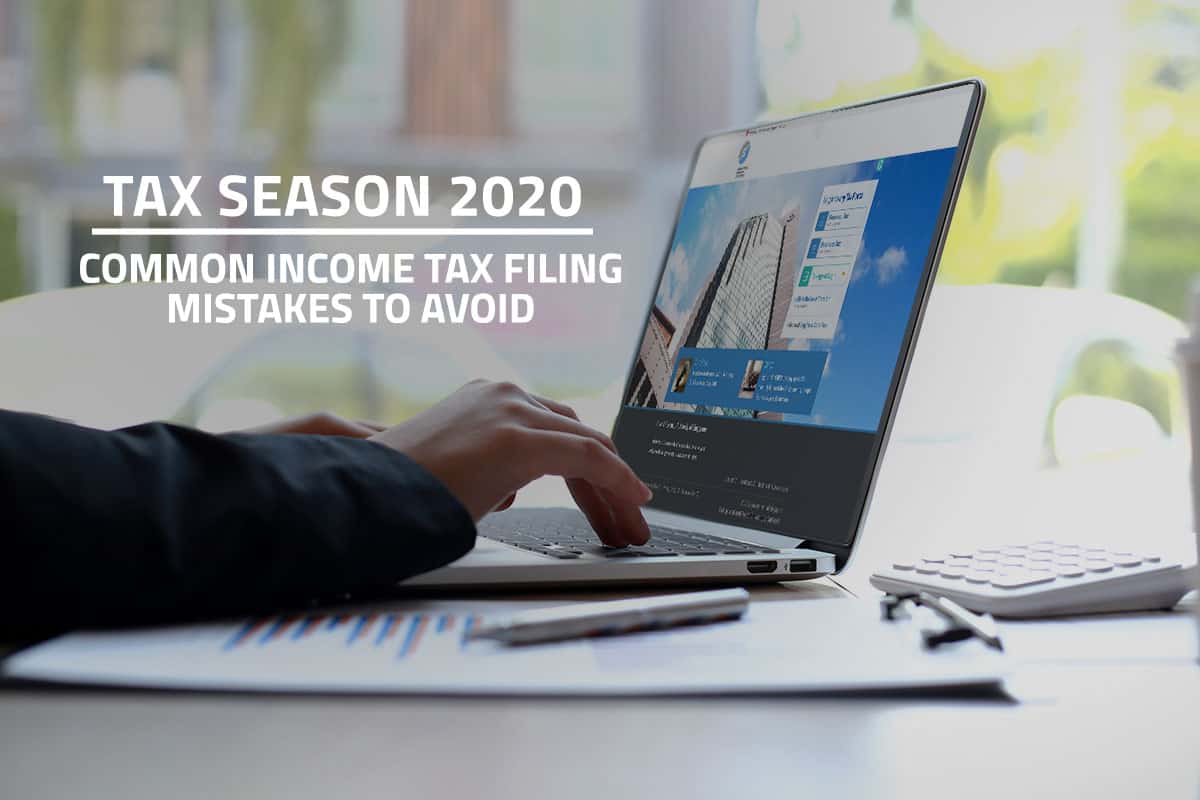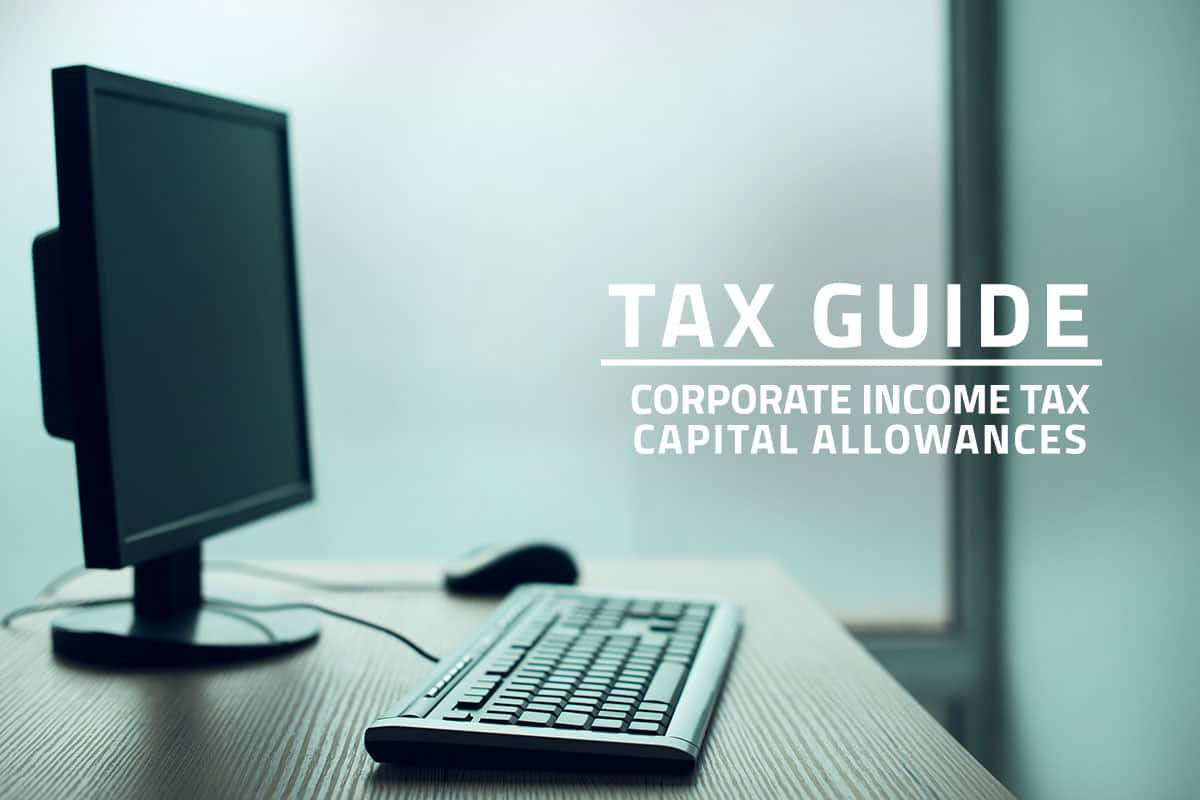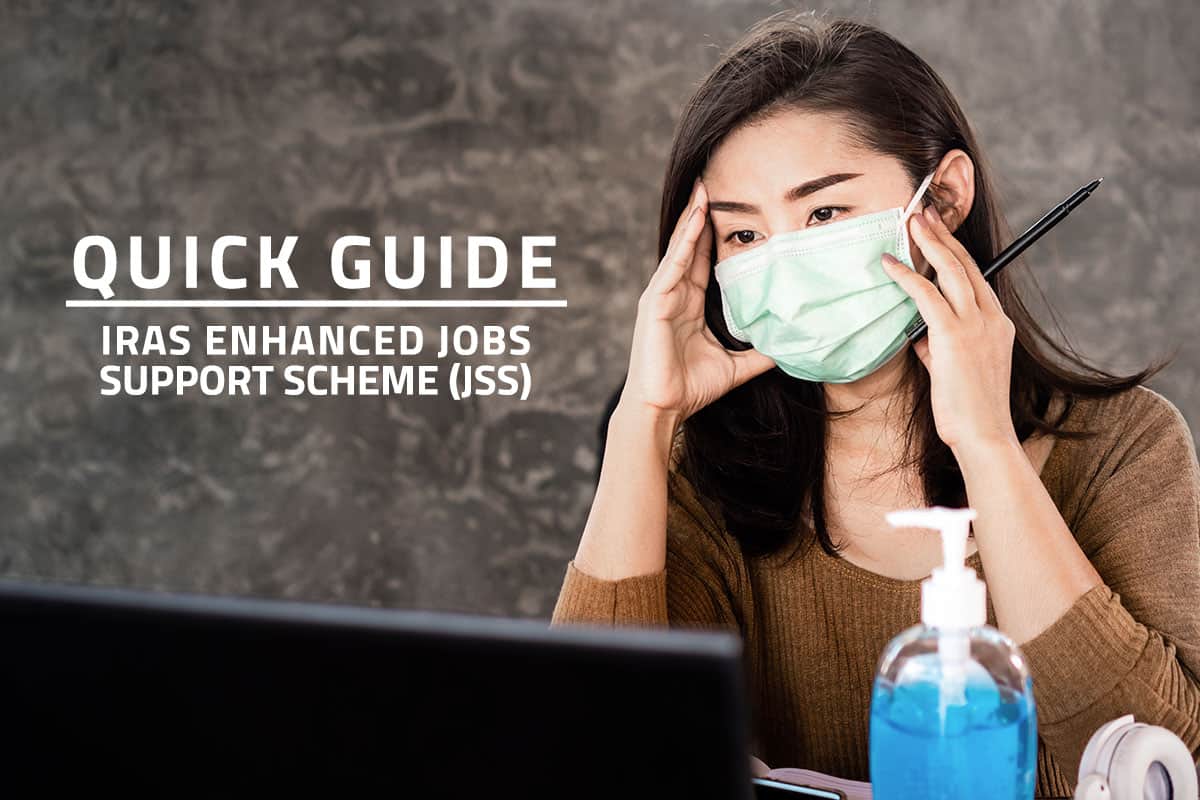The income tax filing process for Singapore individuals and employees has changed as a result of Circuit Breaker policies implemented by the government to contain the spread of the COVID-19 virus in the country.

Deadlines have been extended, payments have been deferred, and the prescribed method of filing income tax returns now favours digital channels in response to the global health emergency.
These complications may cause confusion among taxpayers, especially those unfamiliar with the various online services offered by the Internal Revenue Authority of Singapore (IRAS). The following guide highlights some common tax filing mistakes individual taxpayers make and outlines how to avoid them this Tax Season 2020.
4 Common Tax Filing Mistakes Made by Employees and Self-Employed in Singapore
Mistake #1 – Not filing any taxes
While the COVID-19 crisis has disrupted the Singaporean way of life as a result of lockdowns and quarantine protocols, income taxes have not been suspended.
In light of the circuit breaker safety measures, IRAS has extended this year’s deadline for filing income tax returns from April to 31 May 2020.
Mistake #2 – Failing to sign up for IRAS deadline extensions and tax payment deferrals
This year, IRAS has automatically applied payment deferments for all self-employed property and insurance agents with income taxes due in May, June and July.
Non-self employed individuals may also opt to apply for a 3-month deferment of their income tax payments to ease their cash flow. Eligible individuals may fill up the following government online application form.
This option excludes non-Singapore citizen employees who have applied for tax clearance and employees of foreign employers.
Mistake #3 – Trying to file taxes physically.
Circuit breaker policies implemented by the Singaporean government have led to a decision from IRAS to temporarily close down their physical service counters in the country. Taxpayers are instead encouraged to use IRAS’ digital channels to file their income taxes electronically through the myTax portal.
IRAS will reopen its service centres starting on 2 June 2020, and resume counter services by appointments only. Taxpayers must then schedule an appointment with IRAS at least two days in advance.
Mistake #4 – Trying to file taxes while eligible for No-Filing Service (NFS)
Being selected for No-Filing Service (NFS) means an individual is not required to file their tax return. For employees of Singapore employers enrolled in the Auto-Inclusion Scheme (AIS), an NFS letter or SMS may be received.
Tax bills for employees eligible for NFS are computed based on the auto-included income information from their employers and the previous year’s relief claims. NFS eligible employees may still check their tax information via IRAS’ myTax portal, to verify the accuracy of these details in their Notice of Assessment (NOA).
Any issues, missing information or errors in relief claim calculations in an individual’s NOA must be reported to IRAS within 30 days from the date of their tax bill.
Other Common Filing Mistakes for Tax Season 2020
With the upcoming Singapore tax season deadlines, individual taxpayers could benefit from reading about more common tax filing mistakes listed on the IRAS website. These include:
- Wrong declaration of trade or business income.
- Wrongful claims of CPF contributions for Self-Employed individuals.
- Submitting unrequested documents.
- Material errors such as omissions of certain income sources or typos.
For new Singapore taxpayers, seeking assistance from a professional accounting firm is a good option to ease the tax filing process and ensure the accuracy of tax returns. Consulting with a qualified Singapore tax expert can help minimize the risk of committing these tax filing mistakes and maximize your time and tax savings.
Related Posts
Tax Guide: Singapore Capital Allowances
By law, all Singapore Companies are required to file annual income tax returns to the…
Quick Guide: IAS 20 – Accounting for Government Grants
This year, the COVID-19 crisis has adversely impacted the global economy. Singapore is no exemption,…
Singapore Guide: ISCA FRB 6 – Accounting for Jobs Support Scheme
This year, the COVID-19 pandemic has inevitably adversely impacted the global economy. Singapore companies and…
Quick Guide: Singapore’s Enhanced Jobs Support Scheme (JSS)
The Singaporean government launched the Jobs Support Scheme (JSS) in late April as part of…












